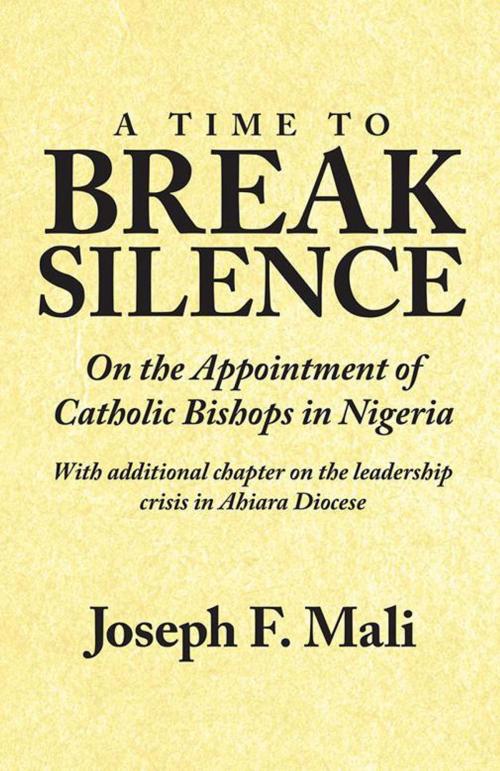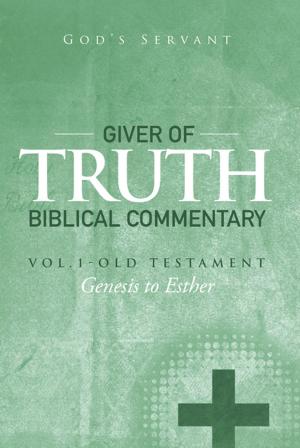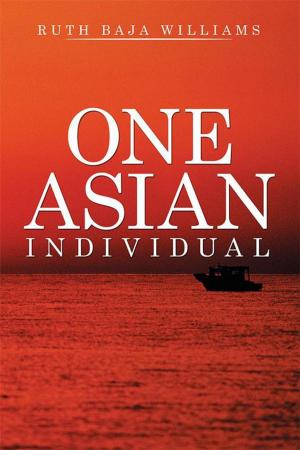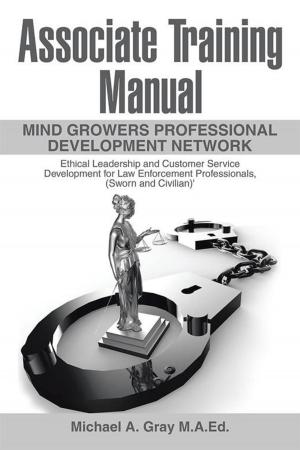A Time to Break Silence
On the Appointment of Catholic Bishops in Nigeria
Nonfiction, Religion & Spirituality| Author: | Joseph F. Mali | ISBN: | 9781469183152 |
| Publisher: | Xlibris US | Publication: | March 30, 2012 |
| Imprint: | Xlibris US | Language: | English |
| Author: | Joseph F. Mali |
| ISBN: | 9781469183152 |
| Publisher: | Xlibris US |
| Publication: | March 30, 2012 |
| Imprint: | Xlibris US |
| Language: | English |
In A Time to Break Silence, Joseph F. Mali argues that given the complexity of Nigeria as a multiethnic society, and in view of the volatile situation in the country, especially the relentless bloodshed in the northern region, there is an urgent need to amend the current process for selecting Catholic bishops in Nigeria. Presently episcopal appointments are the prerogative of the hierarchy and a few influential players.
Nigerian Catholics, Mali maintains, are the best judge of their worsening situation. They deserve a chance to choose church leaders who can effectively tackle their social, political, and religious problems. Hence Mali calls on the Catholic bishops, priests, and laity to expand their views beyond the present method of nominating bishops and pave the way for all the clergy and laity to play a role in the selection process. This, according to Mali, is for the common good of the suffering church of Nigeria.
Drawing on the New and the Old Testament, Mali explains the biblical foundation of the election of leaders by the people. Citing the good old saying, vox populi, vox Die (the voice of the people is the voice of God), and referring to Saint Augustine of Hippo, a distinguished African bishop who became a priest and a bishop by the will of the people, Mali concludes that Nigerian Catholics are capable of choosing priests who would make good bishops.
In A Time to Break Silence, Joseph F. Mali argues that given the complexity of Nigeria as a multiethnic society, and in view of the volatile situation in the country, especially the relentless bloodshed in the northern region, there is an urgent need to amend the current process for selecting Catholic bishops in Nigeria. Presently episcopal appointments are the prerogative of the hierarchy and a few influential players.
Nigerian Catholics, Mali maintains, are the best judge of their worsening situation. They deserve a chance to choose church leaders who can effectively tackle their social, political, and religious problems. Hence Mali calls on the Catholic bishops, priests, and laity to expand their views beyond the present method of nominating bishops and pave the way for all the clergy and laity to play a role in the selection process. This, according to Mali, is for the common good of the suffering church of Nigeria.
Drawing on the New and the Old Testament, Mali explains the biblical foundation of the election of leaders by the people. Citing the good old saying, vox populi, vox Die (the voice of the people is the voice of God), and referring to Saint Augustine of Hippo, a distinguished African bishop who became a priest and a bishop by the will of the people, Mali concludes that Nigerian Catholics are capable of choosing priests who would make good bishops.















